Both vodka and gin are two of the most storied white spirits that occupy very different roles behind the bar.
Vodka often serves as a blank canvas – a smooth, neutral spirit that blends seamlessly into everything from vodka martinis to mixed drinks made with lemon juice, fruit juices, ginger beer, or other versatile vodka mixes.
Flavored vodkas now expand those cocktail options even further. By contrast, gin possesses an innate flavor rarely found in clear spirits, with the juniper berry being a required component for the spirit to classify as true gin.
So, gin versus vodka comparisons come down to a spirit promoting itself versus working to elevate other ingredients.
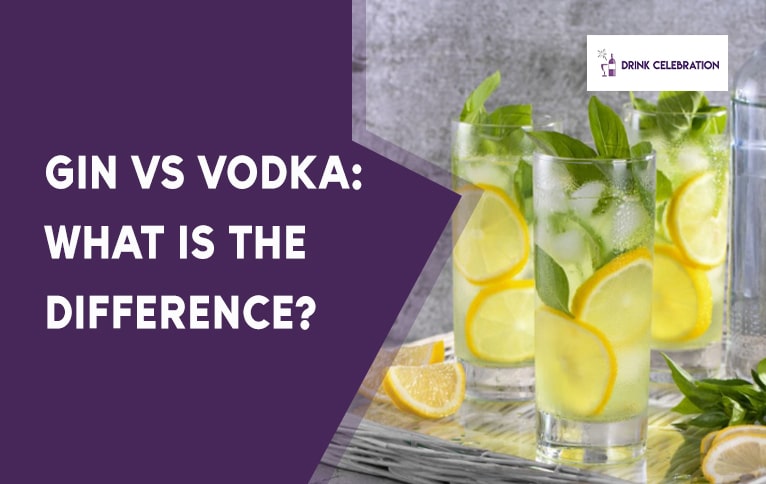
Gin Vs. Vodka: The Comparison
Here’s how both drinks are different:
1. Key Ingredient
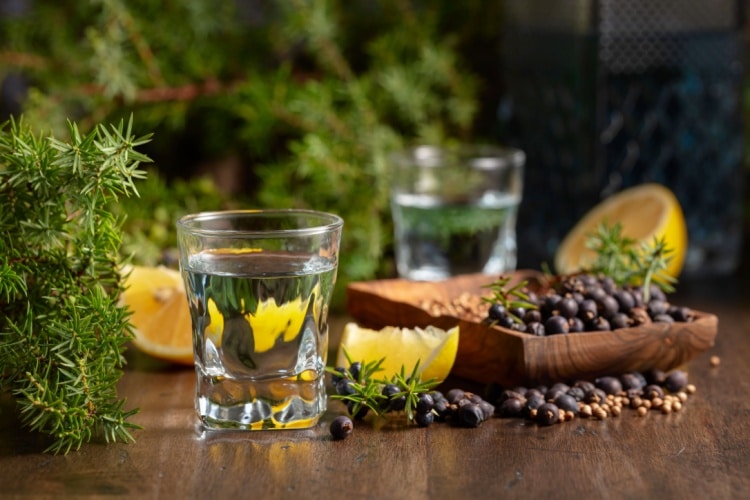
The key ingredient that sets gin and vodka apart is that gin is distilled using juniper berries and often other botanicals like citrus peel, lending gin a more complex flavor profile.
Alternatively, vodka is usually distilled from fermented grains or potatoes, giving it a more neutral taste.
The juniper berries impart gin with distinctive pine and herbal flavors and aromas. In contrast, vodka’s neutral spirit base of fermentable sugars allows the pure alcohol to take center stage rather than having much flavor.
So, while both are clear spirits with high alcohol content, their base ingredients and production allow for two distinct spirits. Vodka is a smooth canvas, while gin brings complex botanicals to the table.
2. Dominant Flavor
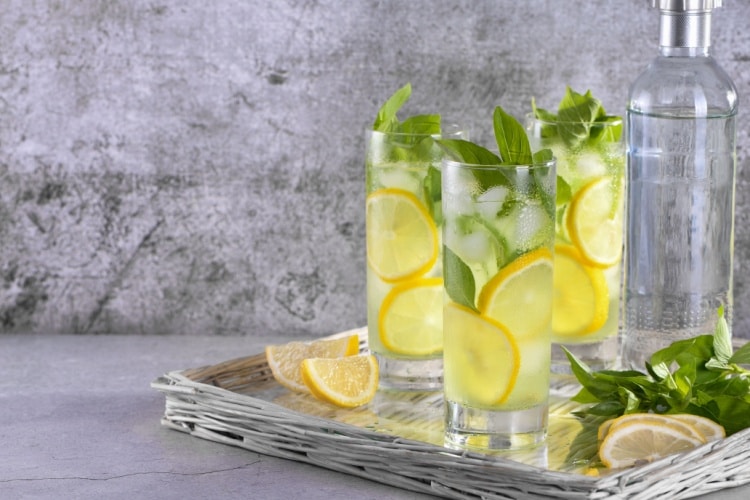
As neutral spirits, vodka offers very little in terms of dominant flavors. Instead, it provides a smooth mouthfeel to allow pure alcohol flavor to come through or serve as a base for other flavors when used in cocktails.
Gin’s dominant flavors come from juniper berries and often other botanicals like citrus peel during distillation. The juniper lends gin a highly distinctive pine and herbal flavor profile.
Even modern gins balance the juniper with citrus and spice flavors compared to more one-note older styles like Old Tom gin.
Vodka is appreciated for its smoothness and balance, and gin’s flavor is defined by botanicals, especially the ever-present taste and aroma of juniper berries.
3. Aroma

The aromas of gin and vodka are noticeably different due to their base ingredients and distillation processes. Vodka tends to have an aroma primarily of pure alcohol, with faint secondary scents of the underlying grains or potatoes used.
But gin’s distillation involving juniper berries and botanicals like citrus peel provides a much more complex nose. The spirit leads with the evergreen, piney scent of juniper due to the berries’ oils. Hints of citrus, flowers, spices, and herbs also commonly contribute to a gin’s aroma profile.
Vodka provides spirit warmth on the nose, and gin’s diversity of botanicals offers a crisper, more layered set of aromas even before the first taste. It makes for a more aromatic spirit overall in cocktails like the classic gin martini versus comparable vodka versions.
4. Mouthfeel
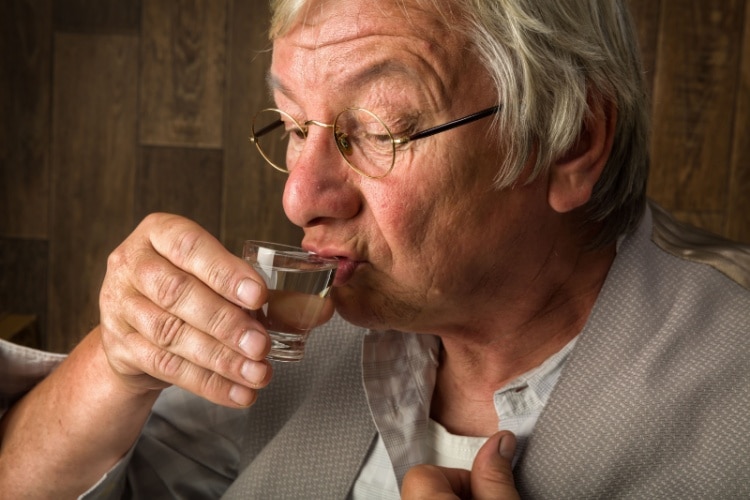
The predominant mouthfeel and weight of vodka tend to be smooth, light, and thin since its main goal is alcohol delivery without much getting in the way.
This allows vodka to pour cleanly into a martini or mix seamlessly into all kinds of easy vodka cocktails like cranberry vodka or vodka soda.
Gin has a bolder, more layered texture and mouthfeel due to the influence of juniper and integrated botanicals from distillation.
The spirit coats the palate with more viscosity, allowing the pine, citrus, herbal, and spice notes to linger.
This makes gin perfect for sipping straight in cold form, though gin also adds delightful mouthfeel complexity to cocktails like a Tom Collins.
5. Typical Use

As a neutral spirit, vodka’s typical use is as a versatile base for cocktails and mixed drinks of all kinds.
Its smoothness and lack of dominant flavor allow vodka to blend seamlessly without overpowering other ingredients—perfect for spirit-forward cocktails.
This makes vodka the optimal choice for popular cocktails like vodka cranberry, vodka soda, Long Island Iced Tea, Moscow Mule, Bloody Mary, and more.
Gin’s typical use flows from its juniper and botanical flavors, calling for thoughtful cocktail pairing to either complement or contrast the juniper and herb notes.
As such, gin is prominently featured in cocktails featuring ingredients like citrus, ginger, cucumber, flowers, or herbal liqueurs.
Even when used in sharper cocktails like martinis, gin’s flavor still stands out compared to more faded vodka versions.
6. Distillation Process
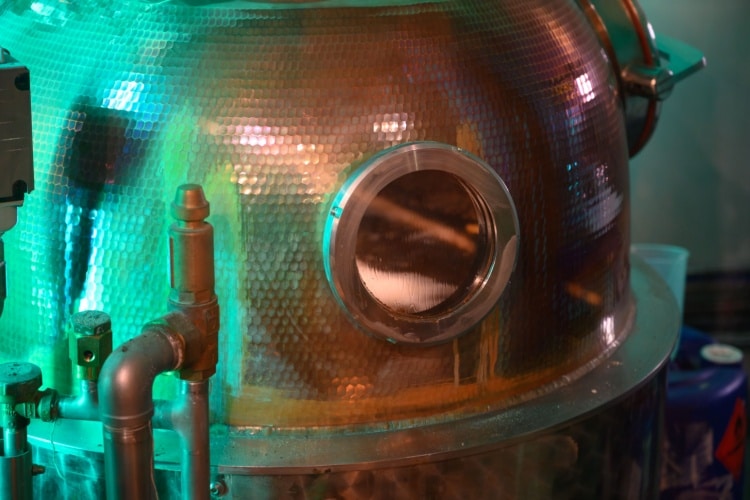
The distillation process also sets gin and vodka apart. Most vodka is distilled multiple times using column stills – a process that highly refines the spirit to remove almost all flavors and impurities except pure alcohol.
This results in vodka’s iconic neutrality and smoothness. Gin production favors the pot still method instead. It involves distilling in smaller batches, allowing the flavors of juniper berries, citrus peels, herbs, and spices to integrate directly into the spirit.
Fewer distillations and the botanical mix mean gin retains more flavor complexity at the expense of ultimate smoothness.
While vodka is defined by an exceptionally clean distillation for a near-flavorless purity, gin embraces distilling character from botanicals, especially assertive juniper berries. The process leaves a distinctly piney, aromatic spirit as the end product.
7. Price

There is generally a noticeable price difference between vodka and gin. As tightly controlled, mass-produced neutral spirits, most vodkas are affordable, usually between $10-30 per bottle.
Premium brands may reach $40-60 per bottle, but smoothness and quality, not flavor, drive vodka’s pricing.
Gin pricing has more variance depending on quality ingredients and production complexity from its requisite juniper and botanicals. While budget gins exist, the average price for respectable gin starts around $5-15 higher than vodka.
More small-batch crafted gins using unique botanical blends can demand premium pricing of $40-60 a bottle or beyond.
Final Words
In closing, vodka and gin occupy very different roles that lead to distinct drinking experiences. Those seeking a smooth spirit that disappears into fruity, citrus-laced drinks reach for vodka’s friendly neutrality (unless we’re talking about flavored vodka).
Meanwhile, gin drinkers want to taste the layers of botanical complexity as the star spirit shines through in their martini or other cocktail.
Whether you think of vodka as the ultimate mixer or gin as a high-value sipping experience, understanding the key differences comes down to expectations around flavor…or lack thereof.
Ultimately, vodka and gin each have their devotees – but rarely do spirit aficionados “love gin” one day and want to just “drink vodka” the next.